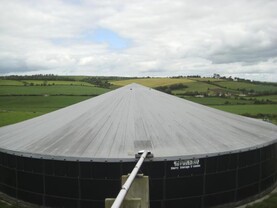The most significant challenge for the agricultural sector is an EU-Mercosur trade deal, the Irish Farmers' Association (IFA) and (Irish Creamery Milk Suppliers Association) ICMSA told the national economic dialogue in Dublin Castle on Wednesday. ICMSA president Pat McCormack told the meeting that Mercosur, reported to be on the verge of agreement, would be a trade disaster for Ireland and an environmental catastrophe for the whole world.
IFA farm business chair Martin Stapleton said CAP budgetary cuts and a looming Brexit present major threats to agriculture and the sector must be supported to achieve sectoral climate action targets.
“In Europe, we expect our Government to take a firm position on the Irish CAP Budget where reductions in spending, coupled with a changing of the goalposts, is not acceptable for farm families. Income must be protected. The next round of CAP negotiations cannot result in more unviable Irish family farms by 2027,” he said.
The IFA’s three key areas for the 2020 Budget:
1 Climate change: Incentivised schemes for renewables at farm level, to include grid access, improved planning and increased support for micro-gen renewables. Leadership to guide the sector through the delivery of the Teagasc Climate Roadmap, and also a Government Strategy for the development of forestry on unenclosed lands. Finally, support for further research to ensure all carbon sequestered in grassland, forestry and hedgerows is recognised.
2 Coupled support: In order to stabilise numbers and improve farm incomes, a targeted payment in the region of €200 per suckler cow is required, structured around the RDP and the existing Beef Environmental Efficiency Programme (BEEP) and Beef Data Genomics Programme (BDGp), the IFA says.
3 Tax: The removal of discrimination in the tax system between PAYE employees and the self-employed. The current €300 gap must be closed out in Budget 2020. Within the taxation system there are further opportunities to encourage positive change for the environment, such as accelerated capital allowance for emission efficient equipment and the extension of the VAT 58 form to include items such as health and safety equipment.
The ICMSA also advocated the need for environmental costs to be priced into food. Pat McCormack said that it was difficult to get away from the impression that both retailers and consumers imagined that the costs associated with climate change and primary food production were all going to be borne by the farmers.
The ICMSA also called for the introduction of the Farm Management Deposit Scheme in next October’s budget, as a practical and tax compliant way of curbing farmer price and income volatility.
Read more
Farming organisations welcome Oireachtas beef report
Critical week for Mercosur as talks coming to conclusion
The most significant challenge for the agricultural sector is an EU-Mercosur trade deal, the Irish Farmers' Association (IFA) and (Irish Creamery Milk Suppliers Association) ICMSA told the national economic dialogue in Dublin Castle on Wednesday. ICMSA president Pat McCormack told the meeting that Mercosur, reported to be on the verge of agreement, would be a trade disaster for Ireland and an environmental catastrophe for the whole world.
IFA farm business chair Martin Stapleton said CAP budgetary cuts and a looming Brexit present major threats to agriculture and the sector must be supported to achieve sectoral climate action targets.
“In Europe, we expect our Government to take a firm position on the Irish CAP Budget where reductions in spending, coupled with a changing of the goalposts, is not acceptable for farm families. Income must be protected. The next round of CAP negotiations cannot result in more unviable Irish family farms by 2027,” he said.
The IFA’s three key areas for the 2020 Budget:
1 Climate change: Incentivised schemes for renewables at farm level, to include grid access, improved planning and increased support for micro-gen renewables. Leadership to guide the sector through the delivery of the Teagasc Climate Roadmap, and also a Government Strategy for the development of forestry on unenclosed lands. Finally, support for further research to ensure all carbon sequestered in grassland, forestry and hedgerows is recognised.
2 Coupled support: In order to stabilise numbers and improve farm incomes, a targeted payment in the region of €200 per suckler cow is required, structured around the RDP and the existing Beef Environmental Efficiency Programme (BEEP) and Beef Data Genomics Programme (BDGp), the IFA says.
3 Tax: The removal of discrimination in the tax system between PAYE employees and the self-employed. The current €300 gap must be closed out in Budget 2020. Within the taxation system there are further opportunities to encourage positive change for the environment, such as accelerated capital allowance for emission efficient equipment and the extension of the VAT 58 form to include items such as health and safety equipment.
The ICMSA also advocated the need for environmental costs to be priced into food. Pat McCormack said that it was difficult to get away from the impression that both retailers and consumers imagined that the costs associated with climate change and primary food production were all going to be borne by the farmers.
The ICMSA also called for the introduction of the Farm Management Deposit Scheme in next October’s budget, as a practical and tax compliant way of curbing farmer price and income volatility.
Read more
Farming organisations welcome Oireachtas beef report
Critical week for Mercosur as talks coming to conclusion






 This is a subscriber-only article
This is a subscriber-only article










SHARING OPTIONS: